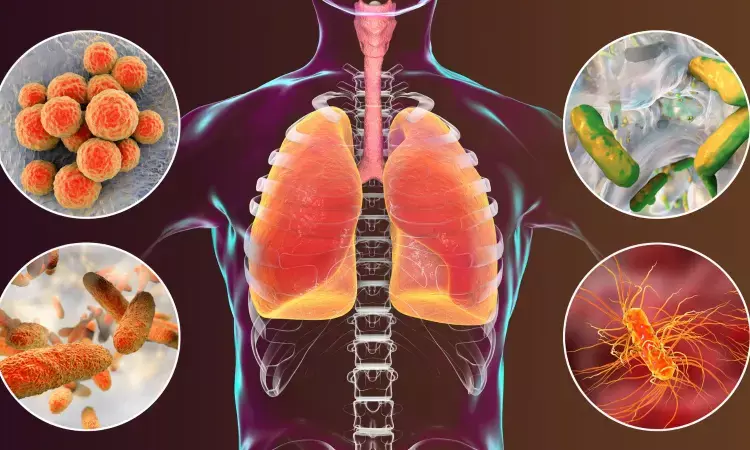- Home
- Medical news & Guidelines
- Anesthesiology
- Cardiology and CTVS
- Critical Care
- Dentistry
- Dermatology
- Diabetes and Endocrinology
- ENT
- Gastroenterology
- Medicine
- Nephrology
- Neurology
- Obstretics-Gynaecology
- Oncology
- Ophthalmology
- Orthopaedics
- Pediatrics-Neonatology
- Psychiatry
- Pulmonology
- Radiology
- Surgery
- Urology
- Laboratory Medicine
- Diet
- Nursing
- Paramedical
- Physiotherapy
- Health news
- Fact Check
- Bone Health Fact Check
- Brain Health Fact Check
- Cancer Related Fact Check
- Child Care Fact Check
- Dental and oral health fact check
- Diabetes and metabolic health fact check
- Diet and Nutrition Fact Check
- Eye and ENT Care Fact Check
- Fitness fact check
- Gut health fact check
- Heart health fact check
- Kidney health fact check
- Medical education fact check
- Men's health fact check
- Respiratory fact check
- Skin and hair care fact check
- Vaccine and Immunization fact check
- Women's health fact check
- AYUSH
- State News
- Andaman and Nicobar Islands
- Andhra Pradesh
- Arunachal Pradesh
- Assam
- Bihar
- Chandigarh
- Chattisgarh
- Dadra and Nagar Haveli
- Daman and Diu
- Delhi
- Goa
- Gujarat
- Haryana
- Himachal Pradesh
- Jammu & Kashmir
- Jharkhand
- Karnataka
- Kerala
- Ladakh
- Lakshadweep
- Madhya Pradesh
- Maharashtra
- Manipur
- Meghalaya
- Mizoram
- Nagaland
- Odisha
- Puducherry
- Punjab
- Rajasthan
- Sikkim
- Tamil Nadu
- Telangana
- Tripura
- Uttar Pradesh
- Uttrakhand
- West Bengal
- Medical Education
- Industry
Rapid syndromic PCR tests tied to more targeted antibiotic treatment for pneumonia: JAMA

Norway: A randomized clinical trial of 374 patients has shown that the routine deployment of PCR testing for lower respiratory tract pathogens enables more targeted and faster microbial treatment for patients with suspected community-acquired pneumonia (CAP).
The findings, published in JAMA Network Open, suggest that this tool could replace selected standard, time-consuming, laboratory-based diagnostics.
"Molecular testing significantly increased the proportion of patients with suspected CAP who received pathogen-directed treatment and reduced the median time to pathogen-directed treatment by 9.4 hours versus the standard of care," Dagfinn L. Markussen, University of Bergen, Bergen, Norway, and colleagues reported.
Lower respiratory tract (LRT) infections, including community-acquired pneumonia (CAP), cause mortality and hospital admissions. Molecular tests can potentially optimize treatment decisions and management of CAP, but the evidence is limited to support their routine use. Considering this, the researchers aimed to investigate whether the judicious use of a syndromic polymerase chain reaction (PCR)-based panel for rapid testing of community-acquired pneumonia in the emergency department (ED) leads to more accurate, faster microbiological test result–based treatment.
For this purpose, the researchers conducted a parallel-arm, single-blinded, single-center, randomized clinical superiority trial between 2020 and 2022, in the emergency department of Haukeland University Hospital in Bergen, Norway. They recruited adult patients who presented to the ED with suspected CAP.
Participants were randomized in a 1:1 ratio to either the intervention arm [received rapid syndromic PCR testing (received BioFire FilmArray Pneumonia plus Panel; bioMérieux) of LRT samples] or the standard-of-care arm (received standard microbiological diagnostics alone). The primary outcomes were analyzed according to the intention-to-treat principle. Three hundred and seventy-four patients (59.1% males; median age, 72 years) were included in the trial, with 187 in each treatment arm.
The two primary outcomes were the provision of pathogen-directed treatment based on a microbiological test result and the time to provision of pathogen-directed treatment (within 48 hours after randomization).
The study led to the following findings:
Analysis of primary outcomes showed that 35.3% of patients in the intervention arm and 13.4% in the standard-of-care arm received pathogen-directed treatment, corresponding to a reduction in absolute risk of 21.9 percentage points and an odds ratio for the intervention arm of 3.53.
The median time to provision of pathogen-directed treatment within 48 hours was 34.5 hours in the intervention arm and 43.8 hours in the standard-of-care arm (mean difference, −9.4 hours).
The corresponding hazard ratio for intervention compared with the standard of care was 3.08. Findings remained significant after adjustment for the season.
In conclusion, the results suggest that routine deployment of PCR testing for LRT pathogens led to more targeted and faster microbial treatment for patients with suspected CAP.
"Rapid molecular testing could complement or replace selected standard, time-consuming, laboratory-based diagnostics," the researchers wrote.
Reference:
Markussen DL, Serigstad S, Ritz C, et al. Diagnostic Stewardship in Community-Acquired Pneumonia With Syndromic Molecular Testing: A Randomized Clinical Trial. JAMA Netw Open. 2024;7(3):e240830. doi:10.1001/jamanetworkopen.2024.0830
BDS, MDS in Periodontics and Implantology
Dr. Aditi Yadav is a BDS, MDS in Periodontics and Implantology. She has a clinical experience of 5 years as a laser dental surgeon. She also has a Diploma in clinical research and pharmacovigilance and is a Certified data scientist. She is currently working as a content developer in e-health services. Dr. Yadav has a keen interest in Medical Journalism and is actively involved in Medical Research writing.
Dr Kamal Kant Kohli-MBBS, DTCD- a chest specialist with more than 30 years of practice and a flair for writing clinical articles, Dr Kamal Kant Kohli joined Medical Dialogues as a Chief Editor of Medical News. Besides writing articles, as an editor, he proofreads and verifies all the medical content published on Medical Dialogues including those coming from journals, studies,medical conferences,guidelines etc. Email: drkohli@medicaldialogues.in. Contact no. 011-43720751


